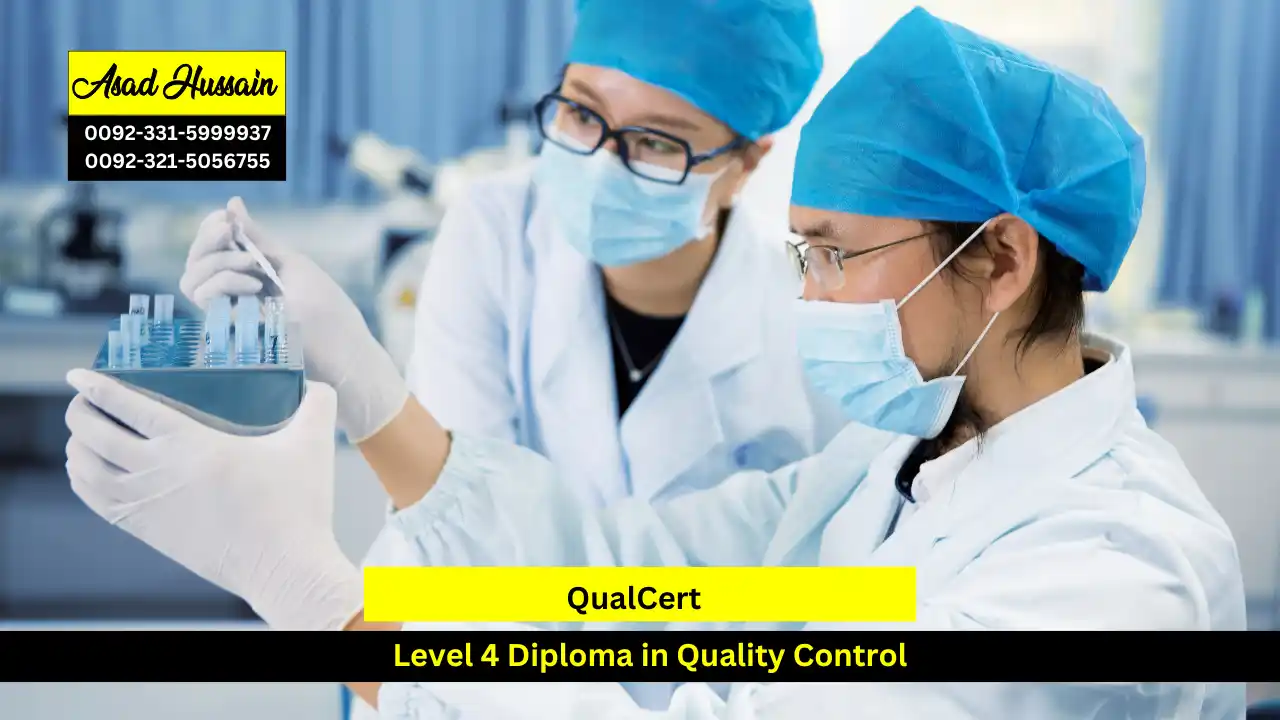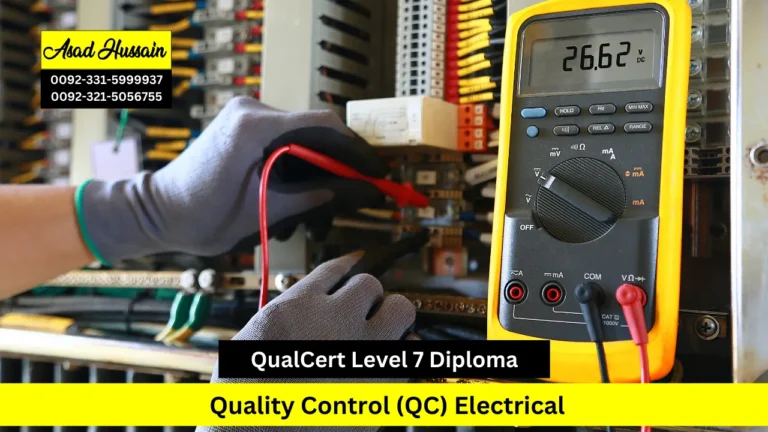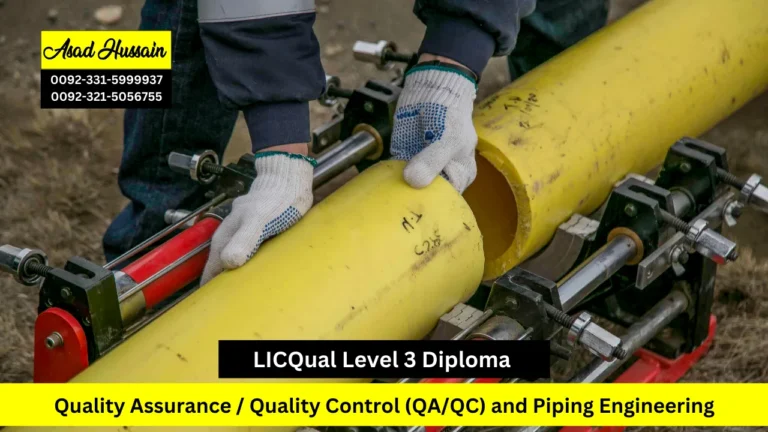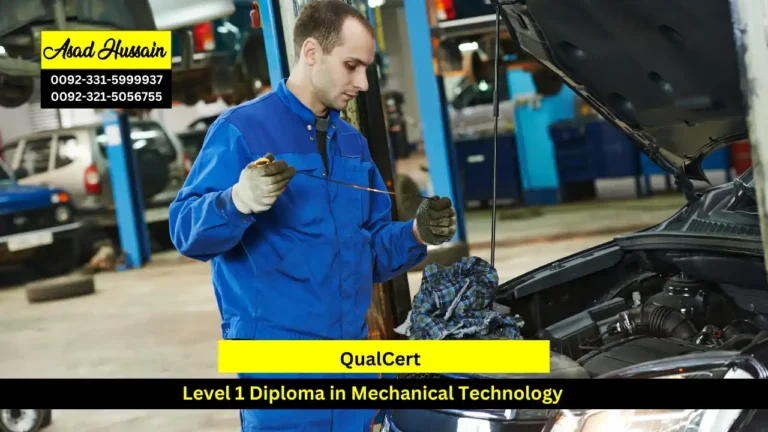In today’s competitive landscape, ensuring quality is more crucial than ever. Businesses across various industries are striving to meet and exceed customer expectations, all while adhering to rigorous standards and regulations. The Level 4 Diploma in Quality Control is a key credential for professionals seeking to advance their careers and contribute to the excellence of their organizations. This post explores what the Level 4 Diploma in Quality Control entails, its benefits, and how it can enhance your professional journey.
The Level 4 Diploma in Quality Control is a comprehensive qualification designed for individuals aiming to specialize in quality control within their respective fields. This diploma provides in-depth knowledge and practical skills related to quality management systems, control procedures, and continuous improvement processes. It is ideal for professionals who are already working in quality roles or those aspiring to move into such positions.
To earn the Level 4 Diploma in Quality Control, you will need to complete a series of modules and assessments designed to test your knowledge and skills. These may include coursework, practical assignments, and examinations. The diploma is typically offered by accredited institutions and can be pursued through various study options, including online and in-person formats.
The Level 4 Diploma in Quality Control is a powerful tool for professionals looking to advance their careers and make a significant impact in their organizations. By mastering quality control principles and practices, you will be well-equipped to lead quality initiatives, drive continuous improvement, and ensure that your organization consistently meets and exceeds industry standards. Whether you are looking to enhance your current role or embark on a new career path, this diploma offers the knowledge and skills needed to excel in the field of quality control.
Program Highlights
Mandatory Units
1. Introduction to Quality Control.
2. Quality Management Systems.
3. Statistical Process Control (SPC).
4. Quality Auditing.
5. Continuous Improvement Techniques.
6. Problem-Solving Techniques.
7. Quality Tools and Techniques.
8. Supplier Quality Management.
9. Regulatory and Compliance Requirements.
10. Case Studies and Practical Applications.
Educational Qualifications
- Minimum of a High School Diploma or Equivalent: Applicants should have completed secondary education or possess an equivalent qualification.
Work Experience
- Relevant Work Experience: While not mandatory, having some experience in a quality control or related role can be beneficial. Applicants with 1-2 years of work experience in quality control, manufacturing, or related fields are encouraged to apply.
Prerequisite Knowledge
- Basic Understanding of Mathematics and Statistics: Applicants should have a basic understanding of mathematical and statistical concepts, as these are essential for the coursework in statistical process control and quality management.
Language Proficiency
- Proficiency in English: Since the course is conducted in English, applicants must demonstrate proficiency in the language. This can be proven through:
Introduction to Quality Control
- Understand the foundational principles of quality control and its importance in various industries.
- Identify key quality control concepts, terminologies, and methodologies.
- Recognize the role of quality control in ensuring product and service excellence.
Quality Management Systems
- Explain the components and functions of quality management systems (QMS).
- Describe different QMS models and standards, such as ISO 9001.
- Assess the implementation and effectiveness of QMS in various organizational contexts.
Statistical Process Control (SPC)
- Understand the principles of Statistical Process Control (SPC) and its applications.
- Utilize statistical tools to monitor and control process variations.
- Interpret SPC charts and data to identify trends and improve process performance.
Quality Auditing
- Gain knowledge of the auditing process and its role in quality management.
- Develop skills to conduct internal and external quality audits effectively.
- Understand audit documentation, reporting, and follow-up procedures.
Continuous Improvement Techniques
- Explore various continuous improvement methodologies, such as Lean and Six Sigma.
- Apply continuous improvement techniques to enhance processes and systems.
- Evaluate the impact of improvement initiatives on organizational performance.
Problem-Solving Techniques
- Learn problem-solving methodologies and tools used in quality control.
- Apply techniques such as root cause analysis and corrective action to address quality issues.
- Develop strategies for effective problem resolution and decision-making.
Quality Tools and Techniques
- Familiarize yourself with common quality control tools and techniques.
- Apply tools such as Pareto charts, fishbone diagrams, and control charts to analyze and solve quality problems.
- Assess the effectiveness of different tools in various quality control scenarios.
Supplier Quality Management
- Understand the principles of supplier quality management and its impact on overall quality.
- Develop skills to evaluate and select suppliers based on quality criteria.
- Implement strategies for managing supplier performance and ensuring quality compliance.
Regulatory and Compliance Requirements
- Explore key regulatory and compliance requirements related to quality control in different industries.
- Understand the impact of regulations on quality management and product/service standards.
- Develop strategies to ensure adherence to regulatory requirements and manage compliance.
Case Studies and Practical Applications
- Analyze case studies to understand real-world applications of quality control principles and techniques.
- Apply theoretical knowledge to practical scenarios to solve quality-related challenges.
- Evaluate the effectiveness of quality control practices through practical examples and case studies.
The Level 4 Diploma in Quality Control is designed for professionals seeking to deepen their expertise in quality management and control. It is ideal for individuals currently working in quality assurance, production, or operations roles who wish to enhance their skills and advance their careers. This course is also suitable for those aiming to transition into quality control positions, as well as for managers and supervisors who want to implement effective quality control systems within their organizations. By targeting those with a foundational understanding of quality concepts, the diploma equips learners with advanced techniques and knowledge to drive quality improvements, ensure compliance, and contribute to organizational excellence.







